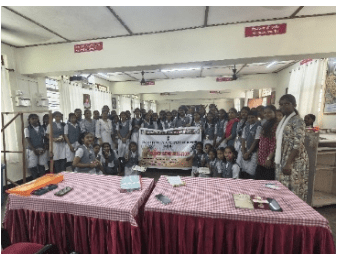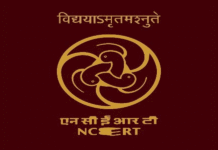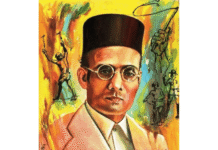An awareness program aimed at educating teenagers on gender roles, stereotypes, and social inclusion was conducted at Government Secondary School, Junglighat, by the State Hub for Empowerment of Women under the Directorate of Social Welfare. The session focused on sensitizing students to the concepts of gender identity, equality, and the rights and responsibilities associated with building an inclusive society.
The program introduced students to topics such as child marriage, the social construct of sex and gender, and the challenges faced by third-gender individuals. The session also touched on legal frameworks like the Dowry Act, and encouraged participants to reflect on the impact of gendered expectations in everyday life.
With teenage students as the primary audience, the initiative sought to build early awareness and influence attitudes at a formative stage. It aimed to break down prevalent stereotypes around masculinity and femininity and push for a more equitable understanding of personal identity, roles within the family, and responsibilities in society.
The session was led by gender specialists associated with the State Hub. One segment focused on differentiating between biological sex and socially constructed gender, while another outlined harmful effects of early marriage, particularly on girls, such as disrupted education, health risks, and long-term disempowerment.
Discussions around third-gender inclusion formed a core part of the curriculum, as facilitators emphasised the need for inclusive spaces in educational institutions, workplaces, and homes. Students were encouraged to rethink how language, behaviour, and attitudes can either uplift or marginalise individuals from non-binary and gender-diverse backgrounds.
Another major highlight of the workshop was the call for mainstreaming gender sensitization into the school curriculum. Facilitators argued that integrating these themes into textbooks and classroom dialogue could normalise gender equity from a young age. They suggested such exposure would foster empathy, reduce bullying, and help shape a more respectful student culture.
Participants were also made aware of key legislation in place to protect women and marginalised genders, including the Dowry Prohibition Act. The session stressed the importance of understanding not just the legal implications of these laws, but their purpose in ensuring dignity and safety for all.
The students actively engaged in discussions and reflected on how media, home environments, and school cultures shape their perceptions of gender roles. Facilitators noted that despite some initial hesitation, students opened up during interactive segments, offering insights into how stereotypes persist and how they might be challenged.
While the workshop was largely informational, it also aimed to instill a sense of agency among young people. Facilitators urged them to act as change-makers within their own schools, homes, and communities by calling out regressive behaviour and advocating for inclusive practices.
The program concluded with a recap of key takeaways and a call for further awareness-building. Participants were asked to share what they had learned with peers and family members and to view equality as a continuous and shared responsibility.
Organisers see the session as part of a larger strategy to equip adolescents with the tools to question, understand, and redefine gender dynamics. More such programs are expected to follow across educational institutions in the region, as part of the Directorate’s broader outreach under the empowerment and inclusion mandate.
The event marked a step forward in institutionalising conversations around gender justice in educational spaces, aligning with national and global goals for equality, inclusion, and youth engagement.





